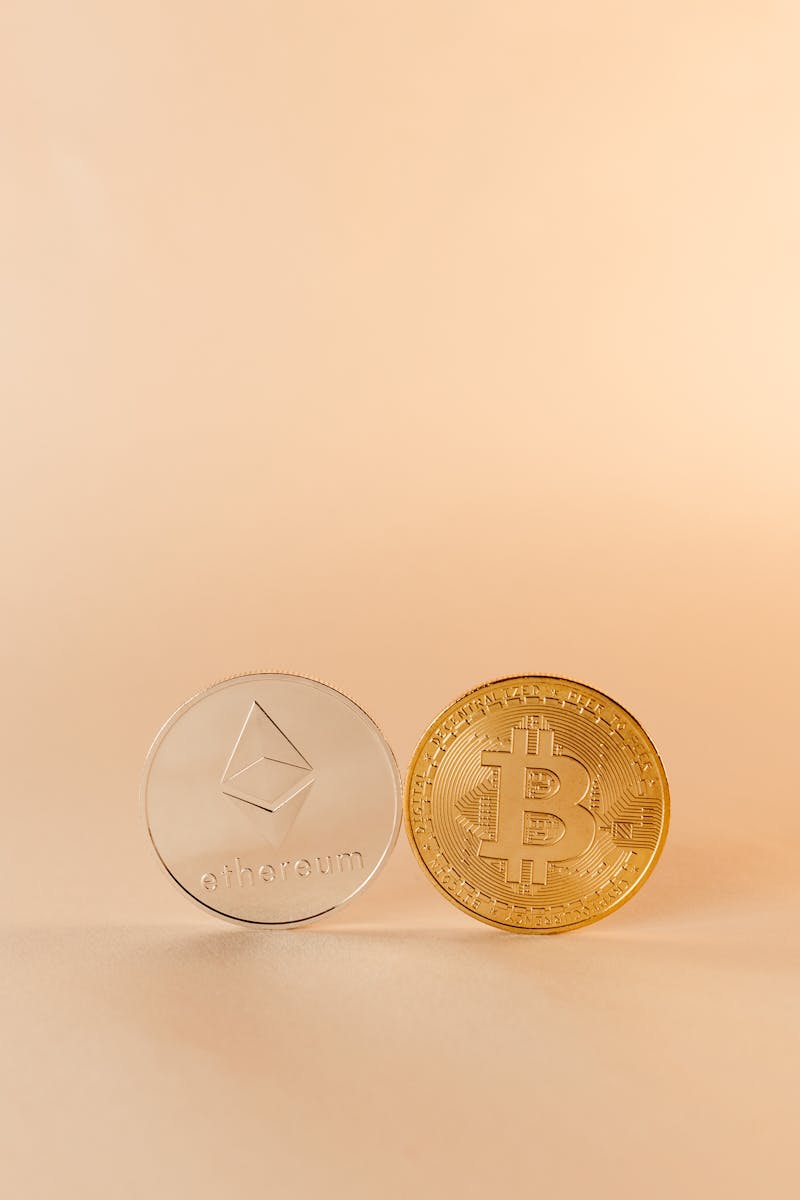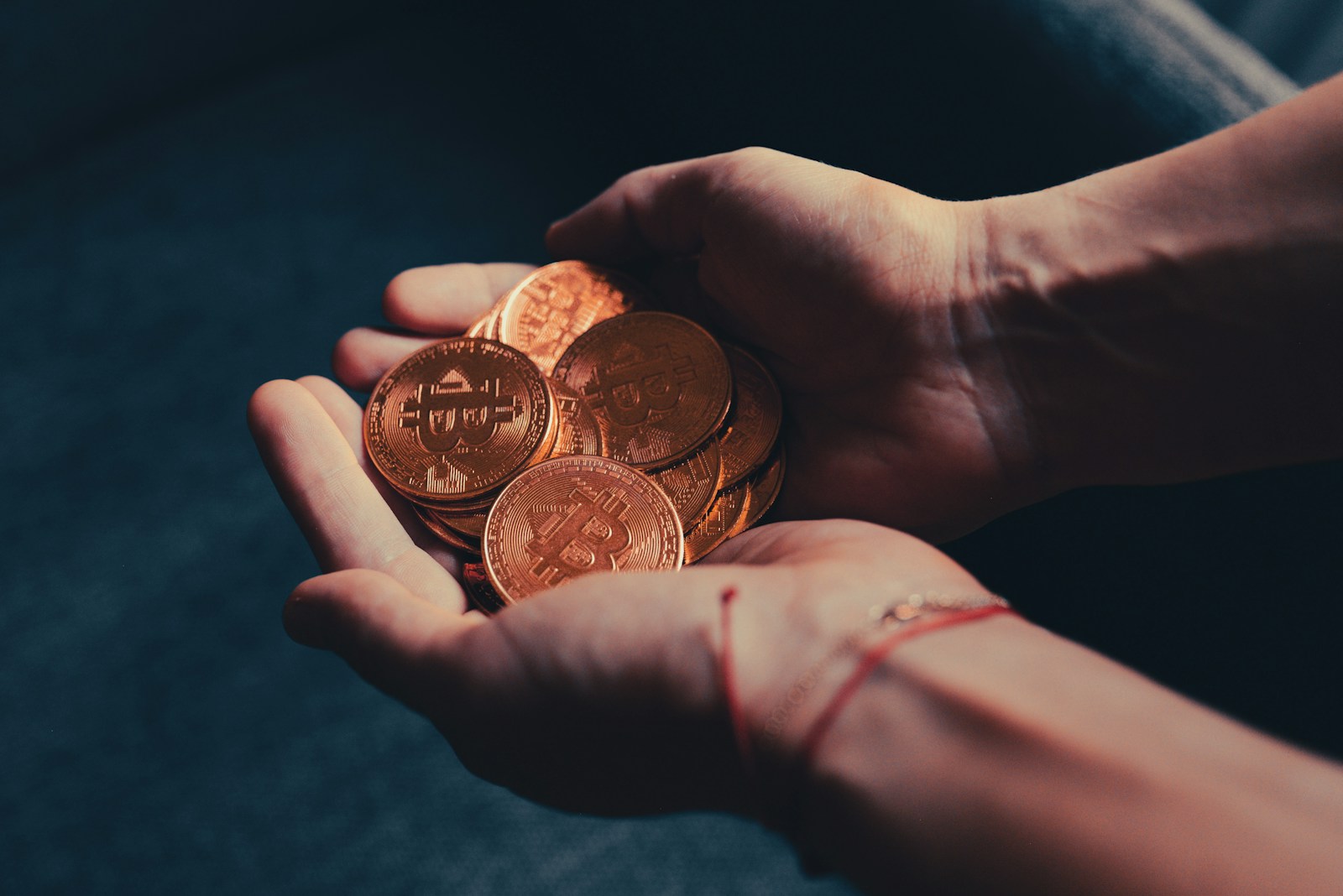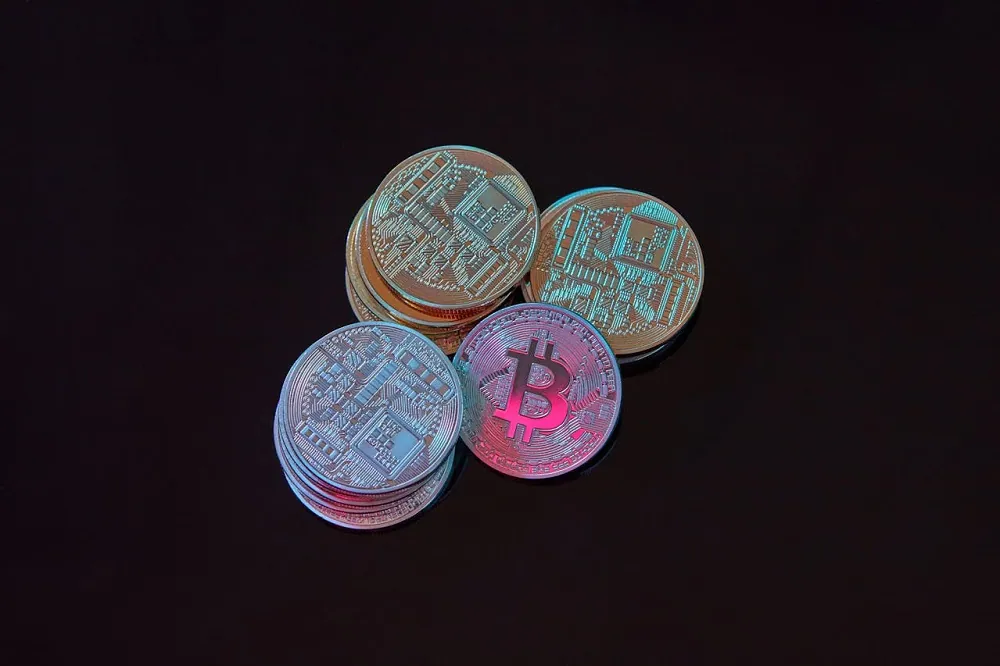Diving into the digital world, cryptocurrencies have become a buzzword synonymous with innovation and a frontier spirit in finance. But what exactly are these digital assets that have captured the attention of millions worldwide? Cryptocurrencies are essentially digital or virtual currencies that use cryptography for security and operate on a technology called blockchain – a decentralized system that records transactions across many computers so that the record cannot be altered retroactively.
Explanation of cryptocurrencies and their growing popularity in online transactions
With their inception, cryptocurrencies promised a way to make transactions without the need for traditional banking systems. They’ve become immensely popular due to their potential for high returns on investment, their convenience for online transactions, and the privacy they offer users. Bitcoin, Ethereum, and Ripple are just a few names that have garnered significant attention and investment. Their appeal lies not only in their novelty but also in their capacity to empower individuals with more control over their financial dealings.
Overview of the potential security risks associated with cryptocurrency transactions
However, this new era of digital finance is not without its perils. The same features that make cryptocurrencies attractive – decentralization and anonymity – also open the door to potential security risks. Unlike traditional banks, where a centralized authority monitors and secures transactions, the responsibility in the crypto space often falls on the individual user. This can lead to vulnerabilities such as exposure to fraudulent schemes, hacking attempts, and phishing scams. For example, if a user’s private key is stolen, they could lose access to their cryptocurrency with no recourse.
Importance of safe online practices to protect digital assets
Given these risks, the importance of safe online practices while dealing with cryptocurrencies cannot be overstated. It’s essential to understand that, in the realm of digital currencies, your assets are as secure as your practices. Safeguarding your investments requires diligence and an understanding of the tools and behaviors that can prevent unauthorized access to your funds. This means using strong and unique passwords, engaging two-factor authentication, and being vigilant against suspicious activities that could compromise your digital wallet.
Understanding Common Security Risks in Cryptocurrency Transactions
As we delve into the world of cryptocurrency, it’s imperative to recognize that the same features making it attractive—such as anonymity and decentralization—also open doors for various security threats. Let’s discuss these risks, starting with some of the most pervasive: phishing attacks, malware, and hacking attempts.

Phishing Attacks, Malware, and Hacking Attempts
Phishing attacks in the cryptocurrency space often involve tricking individuals into revealing sensitive information such as private keys or login credentials. Cybercriminals may send emails resembling those from legitimate sources, urging users to click on malicious links or attachments. Once clicked, these can lead to the installation of malware designed to steal cryptocurrency or hijack a user’s computer resources for mining.
Hacking attempts can range from brute force attacks aimed at cracking passwords to sophisticated exploits targeting vulnerabilities within cryptocurrency networks themselves. Hackers may also use social engineering tactics to gain access to accounts, posing as customer support to extract personal data. The consequences of these attacks can be staggering, leading to the loss of substantial sums of digital currency.
Vulnerabilities in Cryptocurrency Exchanges and Wallets
Cryptocurrency exchanges and wallets are prime targets for cybercriminals due to the concentration of digital assets they hold. While exchanges have made strides in security, they remain vulnerable to breaches. Issues can arise from software flaws, insecure APIs, or the simple mismanagement of security protocols by exchange staff.
Wallets, on the other hand, come in various forms—hot wallets (online) and cold wallets (offline). Hot wallets, while convenient for frequent access and transactions, are more susceptible to online threats. Cold wallets provide a higher security level but are not immune to risks such as physical theft or damage.
Implications of Security Breaches in Cryptocurrencies
The implications of security breaches in the cryptocurrency world can be profound. Financial losses are the most immediate impact, with victims sometimes losing their life savings. Beyond this, there is also a psychological toll, with individuals feeling violated and helpless in the wake of an attack. Furthermore, widespread security incidents can erode trust in the entire cryptocurrency system, potentially stalling adoption and innovation.
In addition to individual losses, breaches can affect the market as a whole. When a major exchange is compromised, it can lead to a sharp decline in cryptocurrency values due to shaken investor confidence and potential market manipulation by attackers.
Legal repercussions are another consideration. Since regulatory frameworks for cryptocurrencies are still evolving, recovering lost funds can be a complex and uncertain process. It highlights the importance of preventive measures and the need for ongoing discussions about regulation and security standards in the crypto space.
In closing, understanding these security risks is not meant to deter individuals from engaging with cryptocurrencies but rather to emphasize the critical role of vigilance and informed practices in this dynamic domain. By staying aware and taking proactive steps to secure digital assets, users can navigate the cryptocurrency landscape more safely.
Tips for Safe Online Practices in Cryptocurrency Transactions
In the digital realm of cryptocurrencies, where the allure of decentralization and anonymity meets the practical world, safety becomes a non-negotiable cornerstone. As we peel back the layers of online security within this innovative space, we zero in on practices that fortify your financial fortresses against cyber onslaughts. Let’s delve into how you can armor up.
Choosing Reputable and Secure Cryptocurrency Exchanges and Wallets
The foundation of your crypto journey begins with the platforms you trust to buy, sell, and store your digital currencies. Opting for reputable and secure cryptocurrency exchanges and wallets isn’t just a good practice; it’s your digital lifeline. To ensure you’re dealing with credible platforms, check for their adherence to regulatory standards and their historical track record. Look for features like insurance policies that cover potential losses from security breaches, which add an extra layer of protection. Remember, your choice here is as crucial as the investments themselves.
Fortifying Your Accounts with Two-Factor Authentication and Strong Passwords
Even the most robust vault is vulnerable if the key is under the doormat. The implementation of two-factor authentication (2FA) acts as the sentry that never sleeps, providing an additional verification step beyond your password. This could involve receiving a code via text message or using an authenticator app. Alongside 2FA, crafting strong, unique passwords for each account is essential. Avoid obvious substitutions or sequences; instead, use a mix of upper and lower case letters, numbers, and symbols, and consider employing a password manager to keep track of your complex passwords securely.
Securing Cryptocurrencies with Hardware Wallets and Offline Storage
Digital currencies thrive online, but sometimes taking them offline can shield them from online threats. Utilizing hardware wallets provides a physical form of security, storing your private keys in a device disconnected from the internet. These wallets often resemble USB drives, making them not only secure but also portable. For added security, some users opt for “cold storage” solutions—keeping their cryptocurrency holdings completely offline on paper wallets or other storage media. It’s akin to keeping your jewels in a safe rather than the jewelry box on your dresser.

Best Practices for Identifying and Avoiding Scams in Cryptocurrency
In the ever-evolving realm of digital currencies, staying vigilant against scams is more crucial than ever. After discussing the foundational steps for safeguarding your digital assets, it’s time to delve into how you can spot and sidestep the deceitful traps laid out by scammers. Let’s begin by illuminating the red flags that often signal a cryptocurrency scam.
Recognizing Red Flags and Warning Signs of Potential Cryptocurrency Scams
Scammers in the cryptocurrency space have become increasingly sophisticated, but there are still telltale signs that can help you stay one step ahead. High returns promised with little or no risk should set off alarm bells; the old adage “if it seems too good to be true, it probably is” holds especially true here. Pay attention to aggressive marketing tactics and pressure to invest quickly, as these are common strategies used to push investors into making hasty decisions without proper due diligence.
Additionally, lack of transparency is a major red flag. Any legitimate investment opportunity will provide clear information about the project, its team, and its roadmap. If these details are missing or vague, proceed with caution. Also, be wary of projects that do not have a white paper or have a white paper that is filled with technical jargon without substance. Transparency is key in the world of cryptocurrencies.
Verifying the Legitimacy of Cryptocurrency Investment Opportunities and Projects
To ensure that a cryptocurrency project is legitimate, start by conducting thorough research. Review the project’s white paper for clarity and feasibility. Does it address a real problem? Is the solution viable? Also, investigate the team behind the project. Look for their professional history and presence on platforms like LinkedIn. A strong, verifiable team is often a sign of credibility.
Another step is to check the project’s codebase if it’s open-source. Platforms like GitHub can provide insights into the activity and development progress of a project. Furthermore, seek out community feedback and discussions on forums such as Reddit, Twitter, or specialized cryptocurrency communities. Be sure to look for a consensus among experienced users rather than isolated opinions.
Strategies for Reporting and Avoiding Fraudulent Activities in the Cryptocurrency Space
Even with all precautions, you might come across suspicious activities or fall victim to a scam. If this happens, it’s important to report the incident to relevant authorities. This could include law enforcement, financial regulators, or dedicated cybercrime units who can take action and help prevent others from being scammed.
One effective strategy for avoiding scams is to use established and reputable platforms for your transactions. Engage only with well-known exchanges and wallet providers that have a track record of security and customer service. Keep yourself informed about the latest scam tactics by following news outlets and community forums. Knowledge is power, and in the cryptocurrency world, staying informed is your best defense against fraud.
By recognizing the warning signs, verifying the legitimacy of projects, and knowing how to report and avoid scams, you can navigate the cryptocurrency landscape much more safely. Stay cautious, conduct thorough research, and never rush into an investment. The crypto-sphere is teeming with potential, but it’s also a breeding ground for scams. Use these best practices to protect yourself and your investments.
Conclusion and Call-to-Action
As we wrap up our discussion on navigating the digital terrain of cryptocurrencies, let’s briefly revisit the essential strategies for maintaining online safety. We’ve learned that the virtual world of digital currencies is not without its hazards, but by adhering to certain practices, we can shield our assets from potential threats.
Recap of the Key Strategies for Safe Online Practices in the World of Cryptocurrencies
The cornerstone of cryptocurrency security is the use of reputable platforms. Opting for secure exchanges and wallets lays a solid foundation for your digital finance journey. Combining this with robust passwords, two-factor authentication, and the wisdom to keep the majority of your funds in offline storage, such as hardware wallets, further fortifies your financial bulwark. But remember, even the strongest walls require vigilant guards – hence, the importance of continuous education on the latest security measures cannot be overstated.

Emphasizing the Importance of Ongoing Vigilance and Education in Safeguarding Cryptocurrency Assets
The landscape of technology and online threats is ever-evolving, and so should our knowledge and awareness. Keeping abreast of new security advancements, understanding the mechanics of different types of attacks, and staying informed about the latest scams are all part of a proactive approach to online safety. Remember, in the world of cryptocurrencies, complacency can be costly. Education is not just a tool but a weapon against would-be digital thieves.
Encouraging Readers to Share the Knowledge Gained and Stay Updated on Evolving Security Measures in the Cryptocurrency Ecosystem
In the spirit of community and collective security, sharing what you’ve learned about safe online practices is invaluable. Whether it’s discussing with friends or participating in online forums, spreading awareness raises the bar for everyone’s safety. Moreover, as you enlighten others, you reinforce your own understanding and remain engaged with the topic. So, don’t keep these nuggets of wisdom to yourself – pass them on!
In conclusion, your journey with cryptocurrencies should be exciting but also guarded. By applying the best practices discussed, monitoring your accounts, and educating yourself continuously, you’ll notonly protect your investments but also contribute to a safer and more secure crypto-sphere for everyone involved. Stay vigilant, stay informed, and together we can navigate the digital terrain of cryptocurrencies with confidence and peace of mind.
Now, it’s time for action. Take a moment to assess your current security practices and consider implementing any necessary changes. Are you using reputable platforms? Do you have strong passwords and two-factor authentication enabled? Have you considered using offline storage for the majority of your funds? Take the necessary steps to secure your assets and protect yourself from potential scams.
Additionally, make a commitment to ongoing education. Stay updated on the latest security measures, new types of attacks, and emerging scams. Engage in discussions with others, whether it’s with friends or online communities, to share your knowledge and learn from others. By staying informed and connected, you’ll be better equipped to safeguard your cryptocurrency assets.
Remember, the crypto-sphere is teeming with potential, but it’s also a breeding ground for scams. Let’s work together to create a safer and more secure environment for all crypto enthusiasts.


